Belarusians celebrate Nobel Peace Prize all around Europe
Belarusians abroad held a series of events to mark the awarding of the Nobel Peace Prize to Ales Bialiatski, head of the Human Rights Center Viasna. The ceremony coincided with Human Rights Day. It was on December 10, 1948, that the UN General Assembly adopted the Universal Declaration of Human Rights.
Belarusian diasporas in several countries came together to watch the broadcast of the Nobel Peace Prize online. People also came out to rallies in support of Belarusian political prisoners, discussed the human rights situation in Belarus, and Bialiatski’s friends, and fellows shared their memories of him.
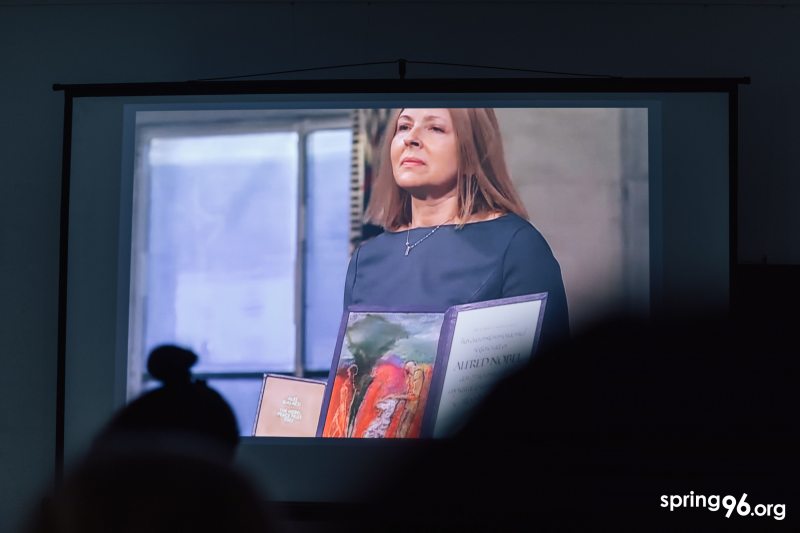
- Belarusians in Vilnius organized an event to watch online the first Nobel lecture in the Belarusian language. Natalia Pinchuk, Ales Bialiatski’s wife, delivered it.
In Vilnius, people were watching the Nobel Peace Prize at the Center for Belarusian Culture also known as Belarusian House. After the viewing, attendees shared their memories of how they first met Ales Bialiatski and their vision of his work.
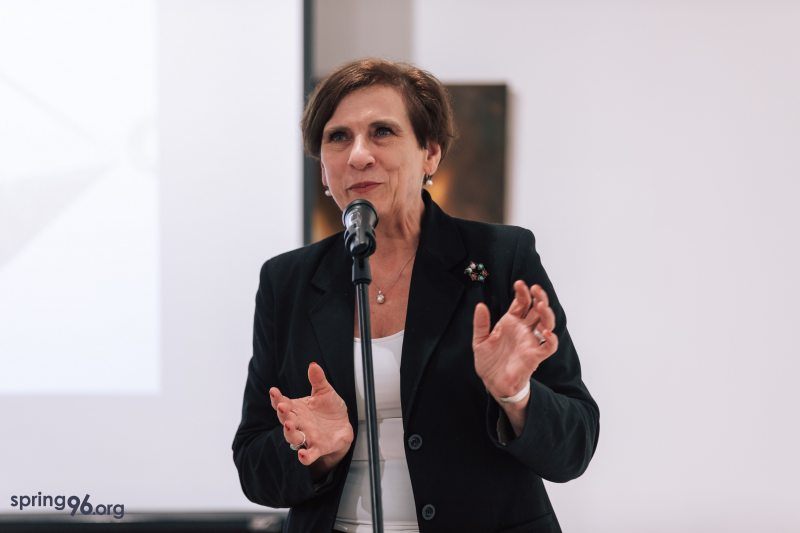
- Liudvika Kardis spoke about how Bialiatski supported Belarussian culture.
Liudvika Kardis, director of the Ivan Lutskevich Belarusian Museum in Vilnius said:
“I remember clearly 1989, the second Seimas of the youth communities in Vilnius. Ales came up to me and asked: ‘How do you feel about the revival of the Belarusian church in Vilnius?’ I replied, ‘Positive.’ And he said: ‘Let's go.’ And I recall vividly how we walked through the old city to St. Nicholas Church (the oldest church in Vilnius were in the 1920s to 1940s, sermons in Belarusian language were also held—ed.), and we were talking all along the way. And in fact that was the impetus for the revival of the Belarusian church in Vilnius. Ales is not only a human rights defender, but also a Christian.”
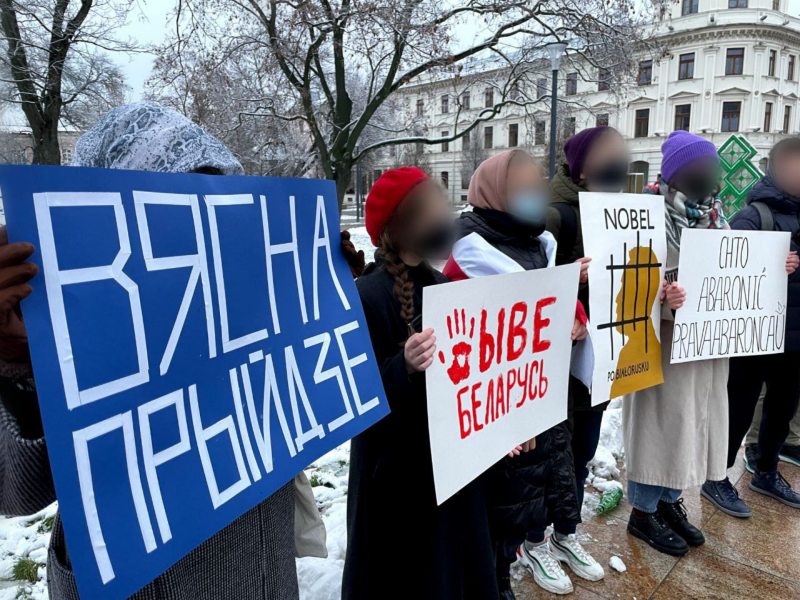
- Belarusians in Lublin held a solidarity picket.
The Belarusians of Lublin took to the streets to raise the issue of human rights and to support jailed rights defenders.
“It's our turn to defend those who have been fighting for human rights in Belarus for decades. In a situation when the most prominent human rights defenders of the country are behind bars, we must be their voice. We must speak out about the violations, support political prisoners, tell their stories and continue their work,” they said.
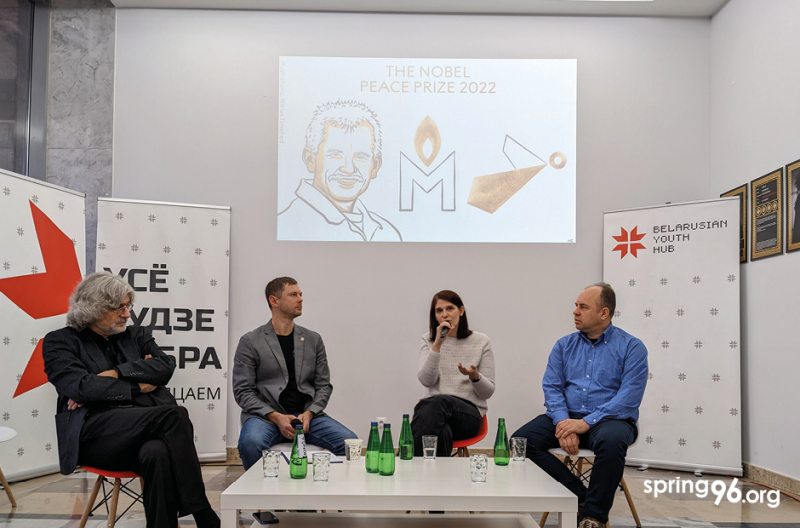
- Belarusian and Polish human rights defenders organized an event at the Belarusian Youth Hub in Warsaw.
In Warsaw, Belarusian and Polish human rights activists discussed the human rights situation in Belarus and possible common actions to improve it.
Ales Lozka, chairman of the Belarusian School Society, shared his memories of his fellow Ales Bialiatski:
“Ales was always a tireless, active person, sensitive to injustice. He was one of the first to open grassroots public organizations in Belarus.”
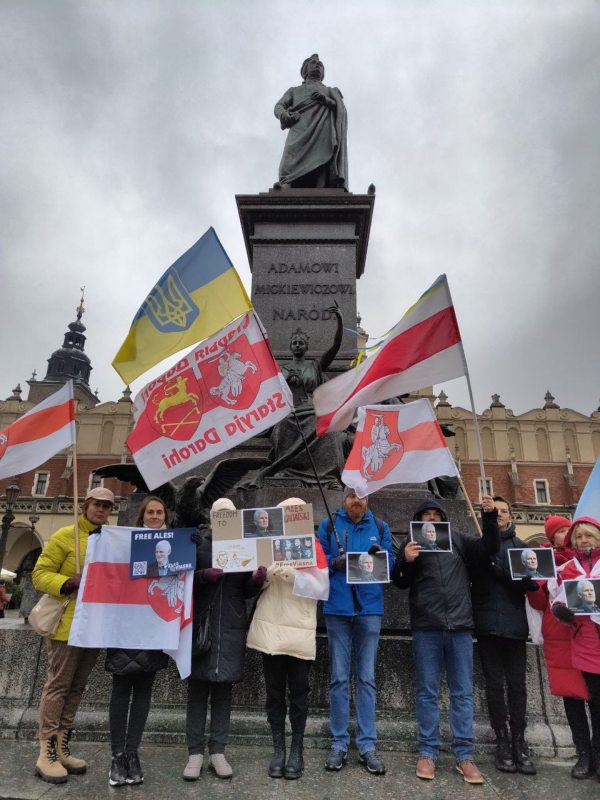
- Belarusians in Krakow during an action of solidarity.
In Krakow, there was a speech in support of Nobel laureate Ales Bialiatski in the central square during the joint Belarusian-Ukrainian action:
“We are proud of our outstanding compatriot and wish him and all political prisoners to be free as soon as possible. Long live Belarus! Freedom to Ales Bialiatski! Freedom to Viasna! Freedom to all political prisoners!”
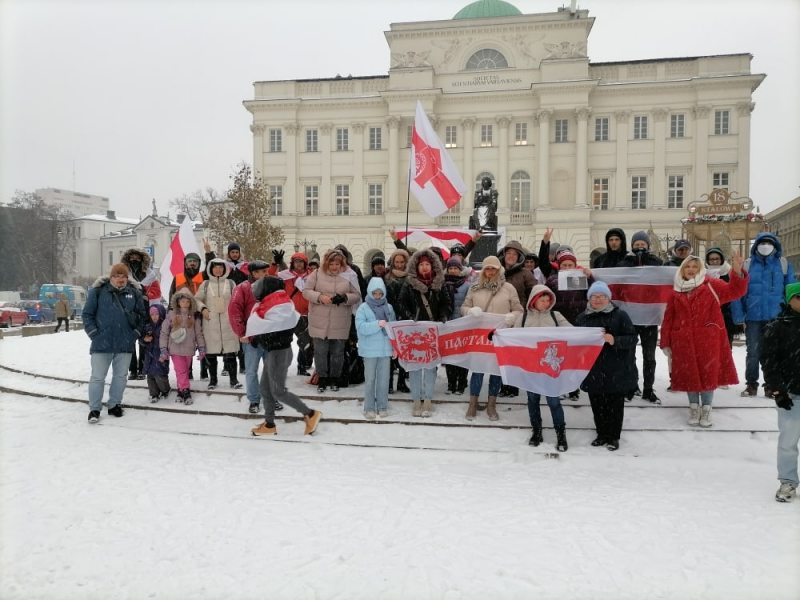
- Belarusian solidarity action on December 11 at the monument to Nicolas Copernicus in Warsaw.
On December 11, Belarusians in Warsaw held a rally at the monument to Nicolas Copernicus on the occasion of Human Rights Day and the awarding of the Nobel Peace Prize to Ales Bialiatski.
Yauhen, one of the meeting participants, shared his memories:
“When I was arrested, I shouted at the top of my voice ‘tell Viasna my name and surname!”
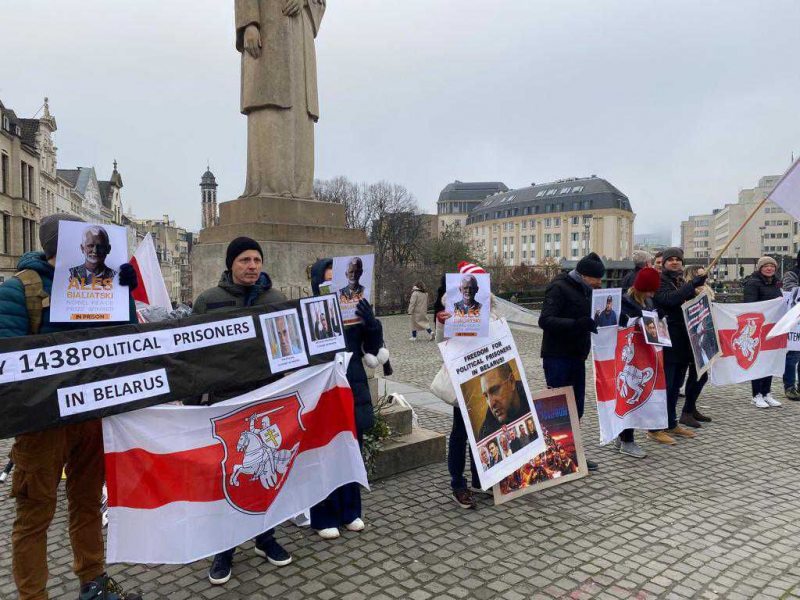
- Belarusians of Brussels during the solidarity action.
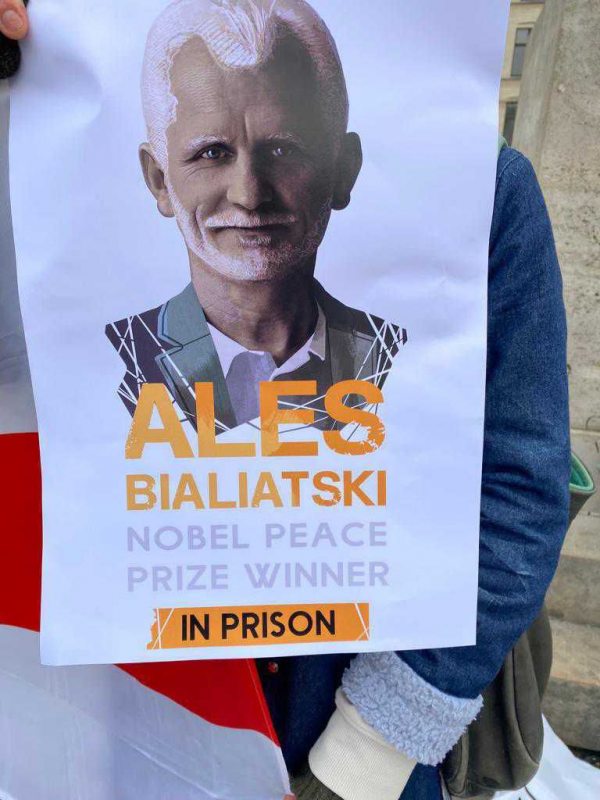
- Belarusians in Brussels hold a portrait of Ales Bialiatski during a solidarity rally.
On the streets of Brussels, Belarusians were also celebrating Ales Bialiatski’s Nobel Peace Prize. They also paid tribute to hundreds of political prisoners in Belarus.
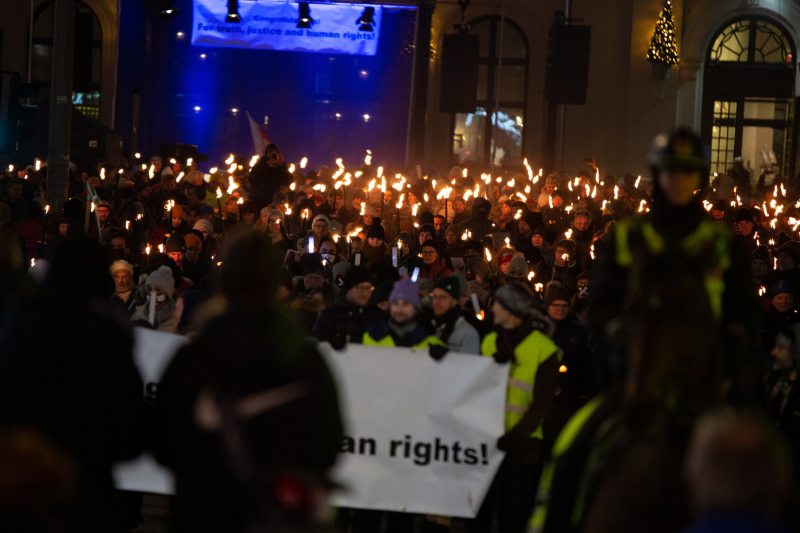
- There is a tradition for a torchlight parade in honor of the Nobel Peace Prize laureates. © Human Rights House Foundation
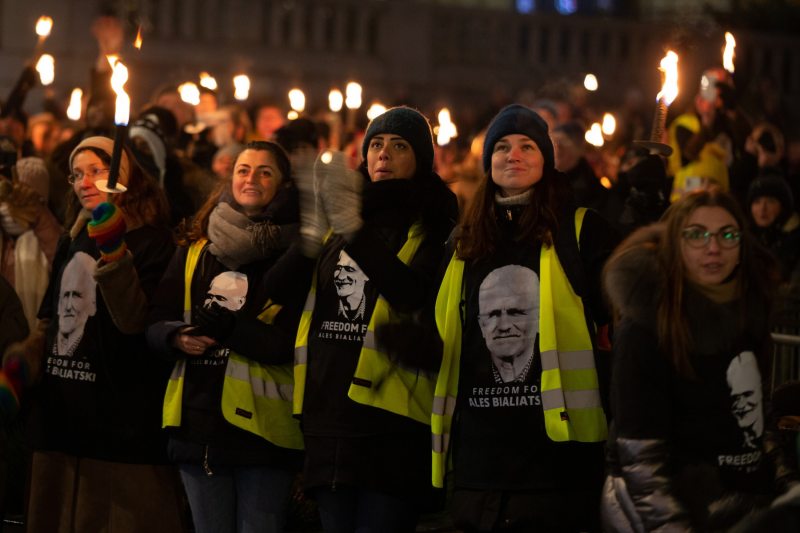
- © Human Rights House Foundation
After the award ceremony for the Nobel Peace Prize winners in Oslo, a traditional torchlight procession was held to show support and solidarity for all human rights defenders.

















